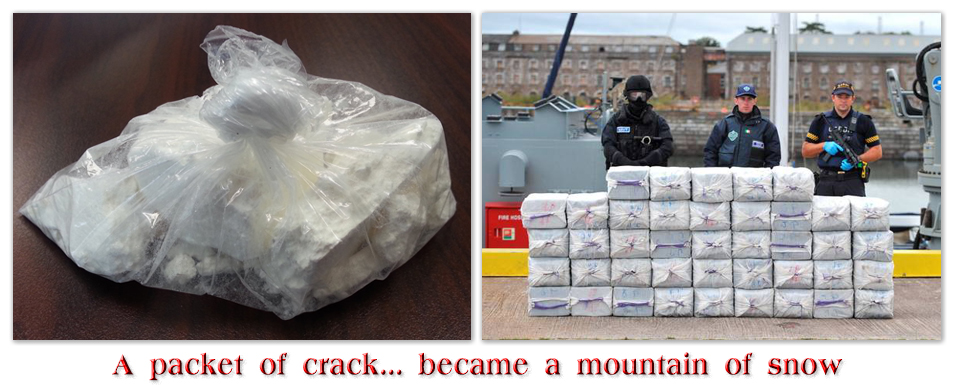We post news and comment on federal criminal justice issues, focused primarily on trial and post-conviction matters, legislative initiatives, and sentencing issues.

COMMON SENSE EXTENDS ITS LEAD, WITH THE CURRENT SCORE 3-0
 The 5th Circuit last week became the third appellate court to decide that whether a defendant’s pre-2010 crack sentence qualified for reduction under the retroactive Fair Sentencing Act depended on the amount of crack cocaine alleged in the indictment, not the amount found by the court at sentencing.
The 5th Circuit last week became the third appellate court to decide that whether a defendant’s pre-2010 crack sentence qualified for reduction under the retroactive Fair Sentencing Act depended on the amount of crack cocaine alleged in the indictment, not the amount found by the court at sentencing.
Andy Jackson was charged with distributing 50 grams or more or crack. But the presentence report (PSR) found him responsible for 402 grams of crack, meaning that he exceeded even the 280-gram threshold for a minimum 10-year sentence contained in the FSA. A defendant qualifies under § 404 of the First Step Act for a reduction only if he or she had a “covered offense.”
The government’s theory was that “what counts as a covered offense necessarily turns on facts specific to the defendant’s offense, not limited to what was charged in the indictment.” In other words, if the jury convicts on a count requiring a showing of 50 or more grams, but the PSR later finds – based on whatever slipshod hearsay-heavy and evidence-light standard the court may have employed at sentencing – that 500 grams were involved, then the defendant doesn’t have a “covered offense,” since the drug quantity as stated in the PSR exceeds even the new 280-gram threshold.
 The 5th Circuit soundly rejected that theory:
The 5th Circuit soundly rejected that theory:
That approach doesn’t comport with the ordinary meaning of the statute, however. As stated above, a “covered offense” is “a violation of a Federal criminal statute, the statutory penalties for which were modified by section 2 or 3 of the FSA… that was committed before August 3, 2010…” Whether a defendant has a “covered offense” under § 404(a) [of the First Step Act] depends only on the statute under which he was convicted. If he was convicted of violating a statute whose penalties were modified by the Fair Sentencing Act, then he meets that aspect of a “covered offense.”
The 4th and 8th Circuits have already reached the same conclusion. No circuit has yet gone the other way.
United States v. Jackson, 2019 U.S. App. LEXIS 37126 (5th Cir., Dec. 16, 2019)
– Thomas L. Root

